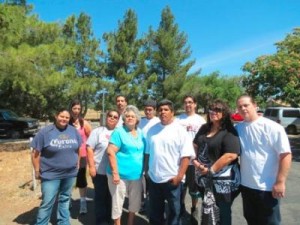By John Stark, The Bellingham Herald
DEMING – The 306 people facing loss of Nooksack Indian Tribe membership have won a round in tribal court, getting a judge to order the tribal council to stop its latest effort to oust them.
The Thursday, June 12, ruling from Tribal Court Chief Judge Raquel Montoya-Lewis stems from a March 2014 Nooksack Court of Appeals ruling. The appeals judge panel had ordered a halt to the process of removing people from tribal enrollment rosters until the tribal council could draw up an ordinance spelling out the procedures for stripping people of tribal membership. Such an ordinance also would require approval from the U.S. Bureau of Indian Affairs, the appeals court ruled.
But in mid-May the tribal council began sending out new notices to some members of the affected families, scheduling July disenrollment hearings before the tribal council under the terms of a 2005 tribal membership ordinance that received BIA approval in 2006. Gabe Galanda, the Seattle attorney representing the threatened families, went back to court to challenge the legality of that maneuver.
After an earlier hearing, Montoya-Lewis agreed that the tribal council was out of bounds.
“This approach appears to be an attempt to circumvent the very clear holdings of the Court of Appeals,” Montoya-Lewis wrote.
While the judge’s ruling delays the move to strip the 306 of tribal membership, it likely will not stop it. There appears to be no legal obstacle to the process, once the tribal council passes the necessary ordinance and gets federal approval. Nooksack Tribal Council Chairman Bob Kelly, who has pushed for the disenrollment, was recently reelected and has the support of a majority of council members.
The disenrollment controversy began in early 2013 after Kelly and a majority of other council members agreed that members of the Rabang, Rapada and Narte-Gladstone families had been incorrectly enrolled in the 2,000-member tribe in the 1980s, and their enrollments should be revoked.
Since then, members of the affected families have mounted a vigorous legal and public relations effort to retain their Nooksack membership. That membership entitles them to a wide range of benefits, among them fishing rights, health care, access to tribal housing and small cash payments for Christmas and back-to-school expenses.
Those facing the loss of tribal membership have based their membership claim on their descent from Annie George, who died in 1949. Members of those three families have introduced evidence that Annie George was Nooksack, but those who want the three families out have noted that George’s name does not appear on a list of those who got original allotments of tribal land or on a 1942 tribal census, and those two criteria determine legal eligibility for membership.




